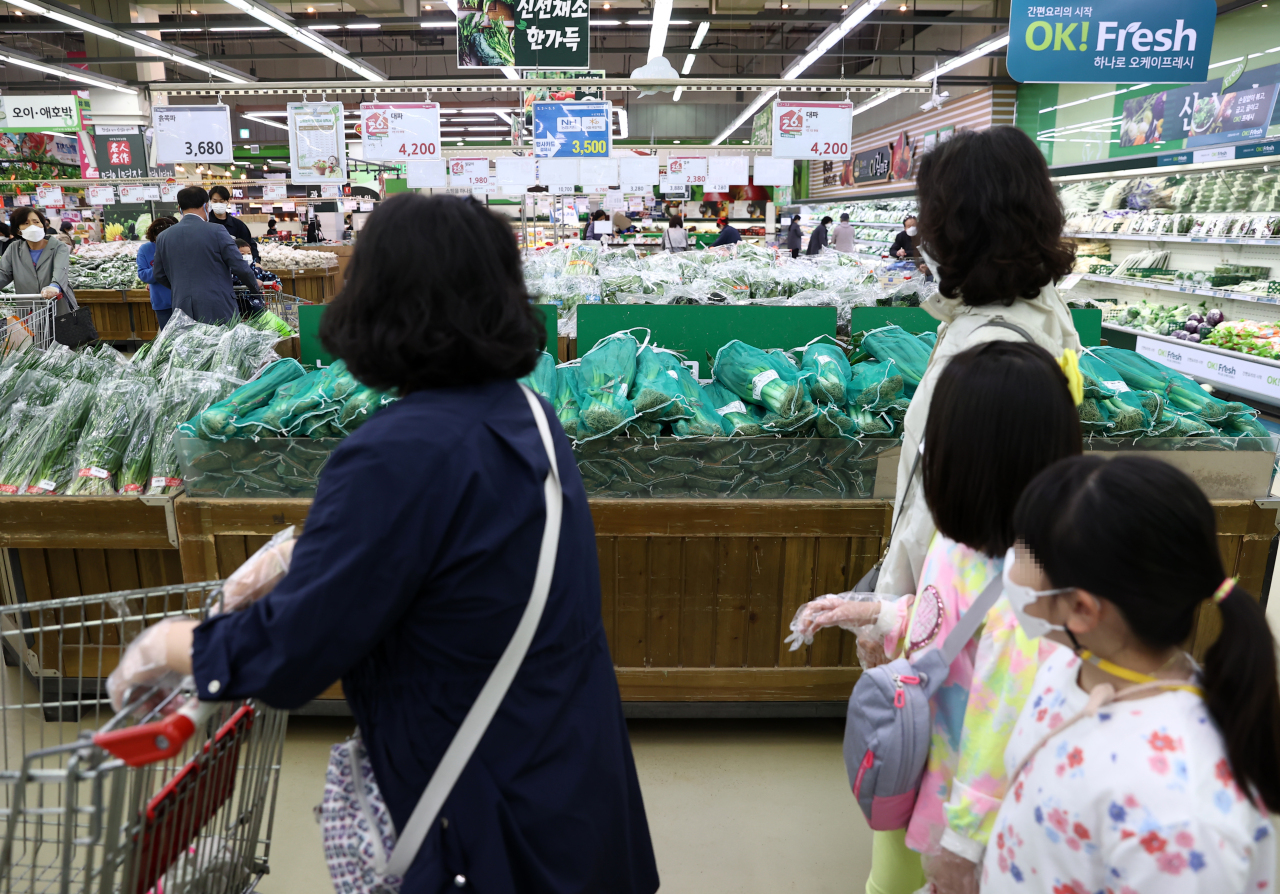S. Korea to take steps if needed amid increased market volatility
By YonhapPublished : May 13, 2021 - 11:47

South Korea plans to take measures to stabilize the financial market if needed, as it has been suffering increased volatility on fears that the Federal Reserve may hike a key rate sooner than expected on inflation woes, a senior government official said Thursday.
First Vice Finance Minister Lee Eog-weon said there is no need for market players to sensitively react to US inflation data as its consumer prices are judged to have temporarily risen amid an economic recovery and a low base effect.
"The government will step up market monitoring and prepare to take timely steps to stabilize the financial market when necessary," Lee said at a government meeting on macroeconomic conditions.
Global inflation fears mounted as US consumer prices shot up 4.2 percent on-year in April, the fastest in 13 years.
South Korea's key stock index traded lower Thursday, heading toward a decline for the third session in a row and taking a cue from overnight plunges on Wall Street over inflation fears.
The country's benchmark stock index, the Kospi, sank 41.69 points, or 1.32 percent, to 3,119.97 as of 2:23 p.m.
The Korean currency was trading at 1,130.20 won per US dollar, down 6.5 won from the previous day.
The country also faces growing inflationary pressure, with the consumer price index growing 2.3 percent on-year in April, the fastest on-year gain in almost four years.
Earlier in the day, Lee told a radio program that it is too early to say that the country's economy is overheated enough to warrant a rate hike amid accelerating inflation.
He stressed that inflation growth picked up in March and April due largely to a low base effect from last year when inflationary pressure remained muted amid the pandemic.
Policymakers said inflation will likely pick up in the second quarter due largely to the lower base effect and high prices of agricultural and petroleum products.
Last month, the Bank of Korea (BOK) froze its key interest rate at a record low of 0.5 percent amid concerns of another wave of infections. The BOK aims to keep inflation at 2 percent over the medium term. (Yonhap)
First Vice Finance Minister Lee Eog-weon said there is no need for market players to sensitively react to US inflation data as its consumer prices are judged to have temporarily risen amid an economic recovery and a low base effect.
"The government will step up market monitoring and prepare to take timely steps to stabilize the financial market when necessary," Lee said at a government meeting on macroeconomic conditions.
Global inflation fears mounted as US consumer prices shot up 4.2 percent on-year in April, the fastest in 13 years.
South Korea's key stock index traded lower Thursday, heading toward a decline for the third session in a row and taking a cue from overnight plunges on Wall Street over inflation fears.
The country's benchmark stock index, the Kospi, sank 41.69 points, or 1.32 percent, to 3,119.97 as of 2:23 p.m.
The Korean currency was trading at 1,130.20 won per US dollar, down 6.5 won from the previous day.
The country also faces growing inflationary pressure, with the consumer price index growing 2.3 percent on-year in April, the fastest on-year gain in almost four years.
Earlier in the day, Lee told a radio program that it is too early to say that the country's economy is overheated enough to warrant a rate hike amid accelerating inflation.
He stressed that inflation growth picked up in March and April due largely to a low base effect from last year when inflationary pressure remained muted amid the pandemic.
Policymakers said inflation will likely pick up in the second quarter due largely to the lower base effect and high prices of agricultural and petroleum products.
Last month, the Bank of Korea (BOK) froze its key interest rate at a record low of 0.5 percent amid concerns of another wave of infections. The BOK aims to keep inflation at 2 percent over the medium term. (Yonhap)












![[Kim Seong-kon] Democracy and the future of South Korea](http://res.heraldm.com/phpwas/restmb_idxmake.php?idx=644&simg=/content/image/2024/04/16/20240416050802_0.jpg&u=)







![[Today’s K-pop] BTS pop-up event to come to Seoul](http://res.heraldm.com/phpwas/restmb_idxmake.php?idx=642&simg=/content/image/2024/04/17/20240417050734_0.jpg&u=)